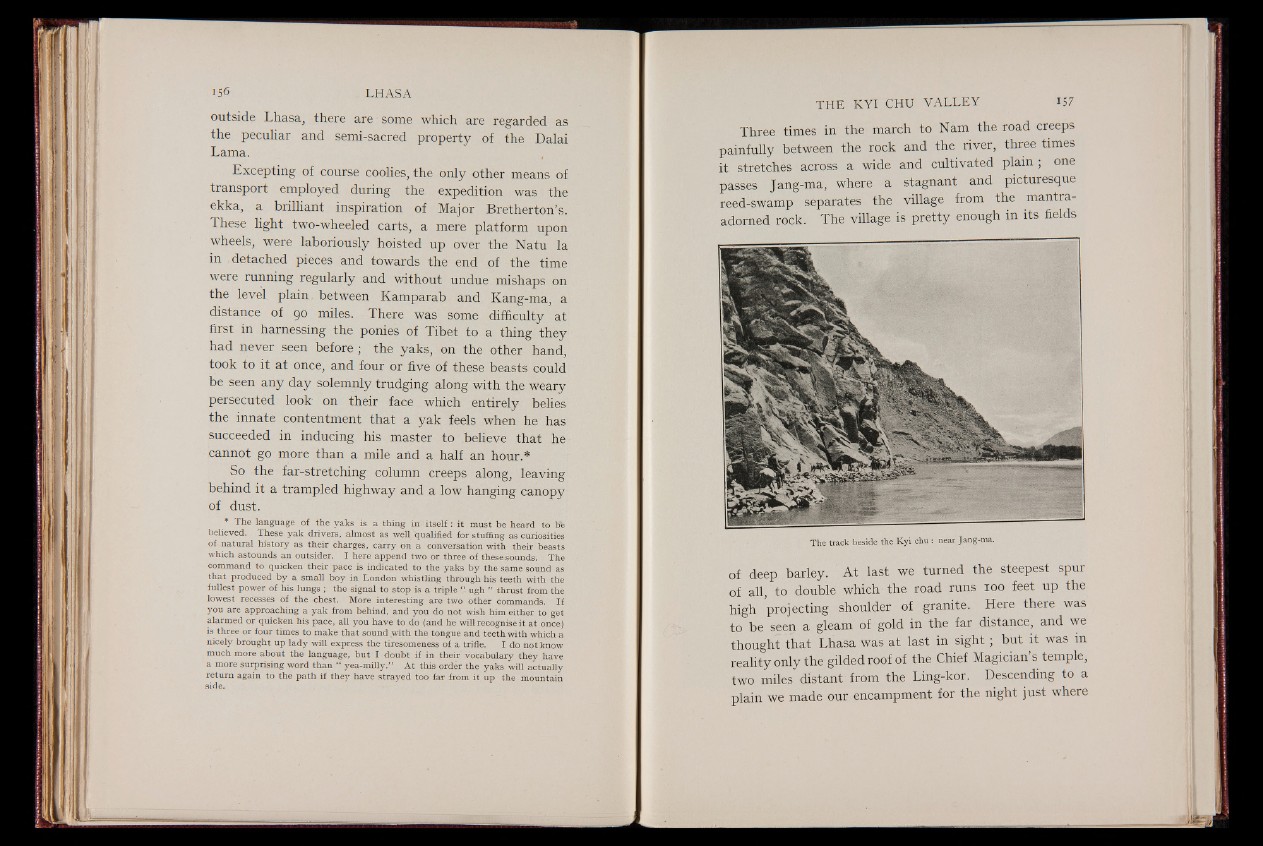
outside Lhasa, there are some which are regarded as
the peculiar and semi-sacred property of the Dalai
Lama.
Excepting of course coolies, the only other means of
transport employed during the expedition was the
ekka, a brilliant inspiration of Major Bretherton’s.
These light two-wheeled carts, a mere platform upon
wheels, were laboriously hoisted up over the Natu la
in detached pieces and towards the end of the time
were running regularly and without undue mishaps on
the level plain between Kamparab and Kang-ma, a
distance of 90 miles. There was some difficulty at
first in harnessing the ponies of Tibet to a thing they
had never seen before ; the yaks, on the other hand,
took to it at once, and four or five of these beasts could
be seen any day solemnly trudging along with the weary
persecuted look on their face which entirely belies
the innate contentment that a yak feels when he has
succeeded in inducing his master to believe that he
cannot go more than a mile and a half an hour.*
So the far-stretching column creeps along, leaving
behind it a trampled highway and a low hanging canopy
of dust.
* The language of the yaks is a thing in itself : it must be heard to t?e
believed. These y ak drivers, almost as well qualified for stuffing as curiosities
o f natural history as their charges, carry on a conversation with their beasts
which astounds an outsider. I here append two or three of these sounds. The
command to quicken their pace is indicated to the yaks b y the same sound as
that produced b y a small boy in London whistling through his teeth with the
fullest power of his lungs ; the signal to stop is a triple “ ugh ” thrust from the
lowest recesses of the chest. More interesting are two Other commands. I f
you are approaching a yak from behind, and you do not wish him either to get
alarmed or quicken his pace, all you have to do (and he will recognise it at once)
is three or four times to make that sound with the tongue and teeth with which a
nicely brought up lady will express the tiresomeness of a trifle. I do not know
much more about the language, but I doubt if in their vocabulary they have
a more surprising word than “ yea-milly.” A t this order the yaks will actually
return again to the path if they have strayed too far from it up the mountain
Three times in the march to Nam the road creeps
painfully between the rock and the river, three times
it stretches across a wide and cultivated plain ; one
passes Jang-ma, where a stagnant and picturesque
reed-swamp separates the village from the mantra-
adorned rock. The village is pretty enough in its fields
The track beside the Kyi chu : near Jang-ma.
of deep barley. At last we turned the steepest spur
of all, to double which the road runs 100 feet up the
high projecting shoulder of granite. Here there was
to be seen a gleam of gold in the far distance, and we
thought that Lhasa was at last in s ig h t; but it was in
reality only the gilded roof of the Chief Magician’s temple,
two miles distant from the Ling-kor. Descending to a
plain we made our encampment for the night just where